“Dool Ain Going All Directions” PD Interview & Episode 2 Recap: We’re All Special
Hi Sikseekers~^^ Here we are in the second episode of Yoo Ah In’s first talkshow “Dool Ain Going All Directions”.
This talkshow tackles some difficult subjects related to Korean history, culture, social-politic and current affairs that most foreign fans don’t have knowledge about. So, it took us quite an effort to grasp the topic and wrote it down. Since KBS didn’t provide any subtitles, all we can do is just giving the highlights of each episode. At first we planned to recap two episodes in one go, but looks like we have to give episode 3 its own special post since it brings about a very interesting topic around gender equality. Not that episode 2 is less interesting, because in this episode Yoo Ah In and Professor Kim Yong Ok, aka Do-ol, also talk about general equality. Without further ado, here’s episode 2 recap.
Episode 2 – We Are All Special
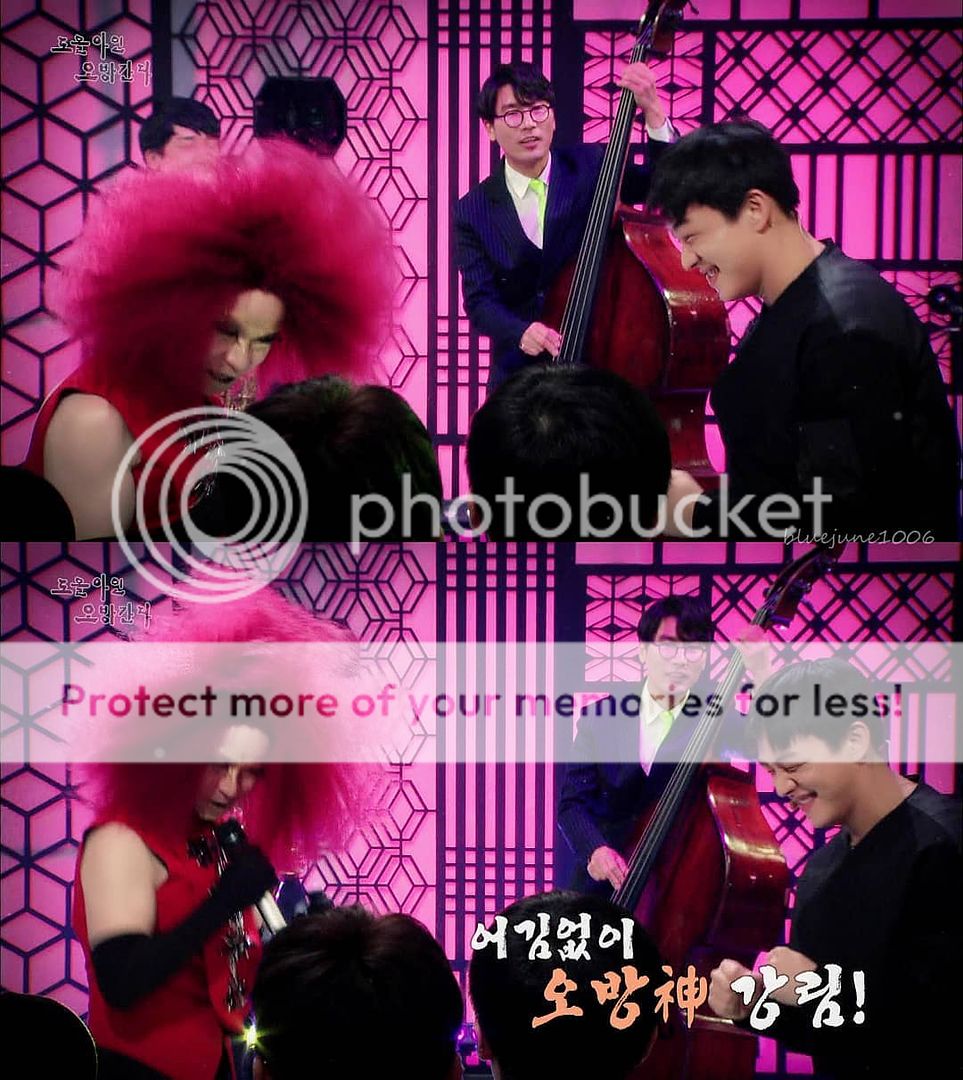
(Yoo Ah In dancing to Obangsin)
[CLIP] Happy MC 😄 Happy Sikturday! 🤗#YooAhIn : “Dool-Ain Going All Directions” EP1 #유아인 #도올아인오방간다
©free21_yoon pic.twitter.com/z7HB9NWloh
— Yoo Ah In Fanbase (@SIKseekers) January 12, 2019
Part 1/4: Time to communicate with the audience through humane Yoo Ah In
Part 2/4: How to live in this turbulence time?
Part 3/4: How to find life as a human being?
Part 4/4: Let’s study hard
In the second episode, Professor Do-ol and Yoo Ah In discussed about general equality and social class with the audience. Between their talk, Yoo Ah In shared his thoughts and some of his personal stories as his way to approach the audience. The second episode got praised by many people. Here are the highlights of this episode:
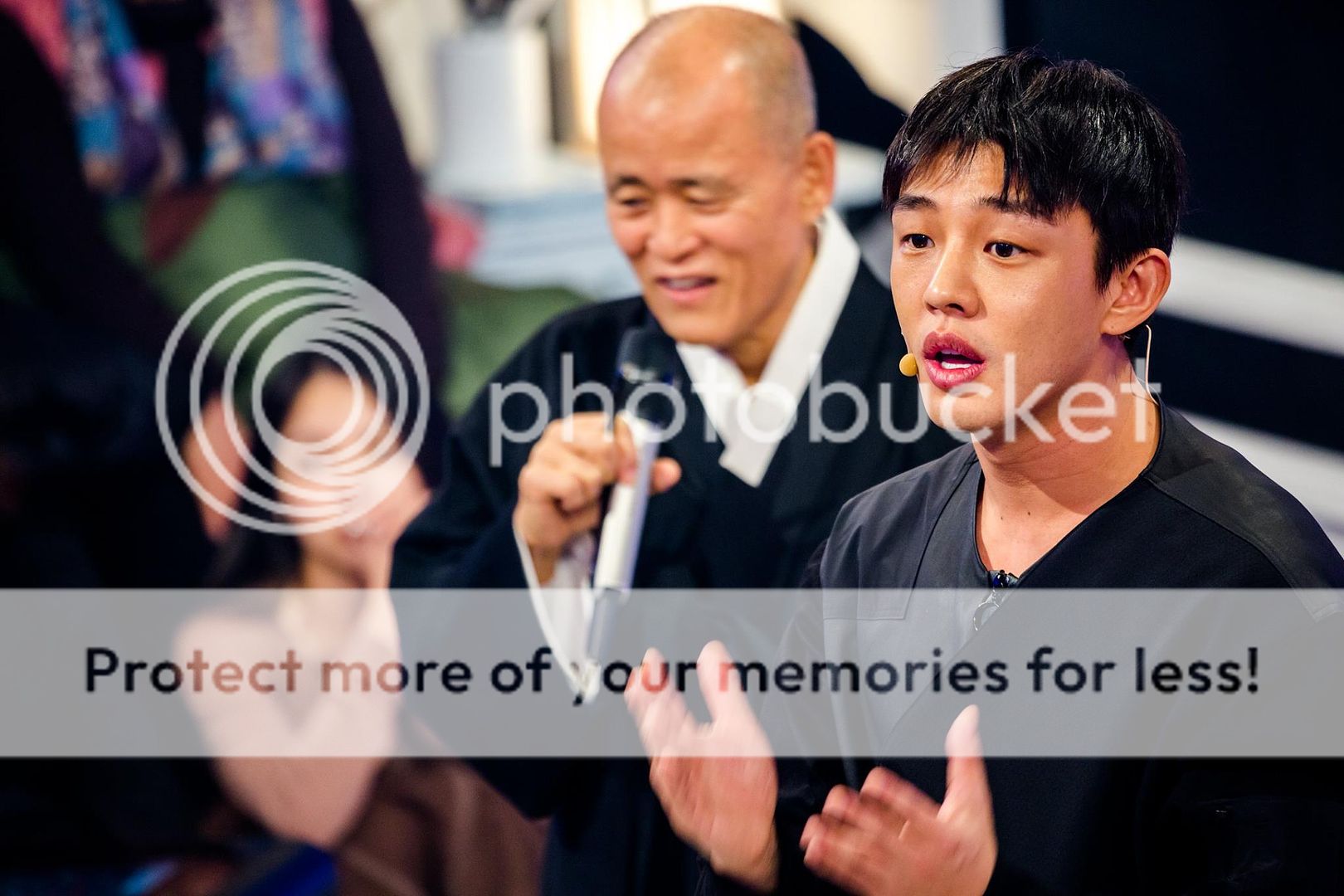
► Yoo Ah In shared his conversation with his stylist to the audience in regard to the concern on inequality of Korean society. He expressed his concerns about the social structure which make living in the country become very difficult, and he talked about how people could improve the situation. He said, “I asked him/her once when (s)he was just starting to work. What dream did this friend have? What was his/her goal? What kind of attitude that this friend had to carry out in his/her work to make his/her own life? For me these questions are a very important part in making friends with someone whom I work with. So, I asked the stylist, ‘Why are you living so hard? Why did you choose to be a stylist? Of course, you like clothes, but are you happy everyday?’. The stylist answered ‘No, I’m not [always happy everyday]’, so I asked again, ‘But why are you working so hard?’. (S)he answered me, ‘Because I want to be respected.'”
Yoo Ah In continued, “This friend said that (s)he was treated unfairly and not fully respected. Because he/she didn’t have a name yet, or didn’t want to burden a person higher than his/her rank, (s)he’s in a very odd situation where (s)he couldn’t talk about his/her complaints properly and couldn’t speak up. My friend was in a very awkward situation where (s)he couldn’t tell his/her story. Is this situation only happened to my friend? I’m curious about your opinion. What do you think? Is Korea an equal society now?”. Then, he showed the survey’s result on the big screen. About 17.7% answered equal and 82.3% answered inequality. Yoo Ah In then called Do-ol to come and talk about this.
► Do-ol Kim Yong Ok began by praising Yoo Ah In for being named Best Actor in The New York Times. He became the first Asian actor to be named by The New York Times in the magazine’s annual list of 12 Best Actors of the year. The giant screen showed his photos and articles in The New York Times. Yoo Ah In was super embarrassed by his praise 😀
[CLIP] Prof. Dool talks about #YooAhIn as one of The New York Times 2018 Great Performers in “Dool-Ain Going All Directions” EP2 😆#유아인 #도올아인오방간다
©starryrainy pic.twitter.com/zGE4peKBkV
— Yoo Ah In Fanbase (@SIKseekers) January 13, 2019
Dool: No, do not step back.
Yoo Ah In: Oh, yes. Should I stand next to you?
Dool: I saw the article in the New York Times… In the New York Times our Ain.. [cue NYT news photos]
Yoo Ah In: Aaah~~ I’m ashamed!
Dool: Best twelve in the world…What… Emma Tones from “La La Land”.
Yoo Ah In: Emma Stone, teacher 😀
Dool: Julia Roberts .. What else… That… Ethan Hawke… Oh…The New York Times writes about the great people… Ah-in Yoo has been working for a while. It’s not about what Ain does for an individual [he has made the country proud too]. I’m very proud of the fact that this magazine evaluated our actor so much.
Yoo Ah In: I am embarrassed. Thank you.
The story naturally shifted to Yoo Ah In’s film BURNING. Do-ol told a story he shared with director Lee Chang Dong. “The director said that the film tells why everyone is so angry. Why is everyone so angry? Haemi says she pursues ideal life, but she lives sadly and tangles up between two men. This is a story about people who don’t know what life is for. BURNING is about inequality and confused young people in Korea.”
Yoo Ah In said, “There are realistic situations in the film that young people are facing now. Someone is too rich, very comfortable in life, yawning in joyful situations, looking for fun. Someone wants to write, but doesn’t know what to write, who chases after a woman he loves but the object is unclear. Also, this woman seems to pursue the meaning of life, but she’s constrained by the limits of her life. No one is happy, we are all wondering and pursuing something, but we’re not able to identify our goal.”
► Do-ol then introduced Choi Je-u (최제우), the founder of “동학” (Donghak) in 19th centuries. [T/N: Donghak (“eastern knowledge”) was largely a combination of Neo-Confucianism with Korean shamanism, but borrowed two elements from Christianity, the singular God and the principle of egalitarian aloofness from the rest of society. Choi was alarmed by the intrusion of Christianity (천주교, Cheonjugyo Catholicism), and the Anglo-French occupation of Beijing. He believed that the best way to counter foreign influence in Korea was to introduce democracy, establish human rights and create a paradise on Earth independent of foreign interference. In 1892 the small groups of the Donghak movement were united into a single Peasant Guerrilla Army or Donghak Peasants’ Army. The peasants worked in the fields during the day, but during the night, they armed themselves and raided government offices and killed rich landlords, traders, and foreigners. They confiscated their victims’ properties for redistribution. Later, Choi was executed as a criminal by the government. It is said that Donghak religion is the fundamental of the Donghak Peasant Revolution (동학 농민 운동) 30 years after his death. The Donghak Peasant Revolution is a very important movement in Korean history. So in the second episode, they talked about universal equality through the life of Choi Je Woo].
Choi Je Woo was a person who experienced extreme inequality and agonized over what to do in a chaotic situation like the young people today. So, Do-ol said that Choi’s life taught many lessons to young people today. When he talked about history, Yoo Ah In joined him too. He summarized Do-ol’s lecture for the audience or highlighted what he found interesting in Choi’s life. [This is why Yoo Ah In is given the title “Good Student” in this talk show].
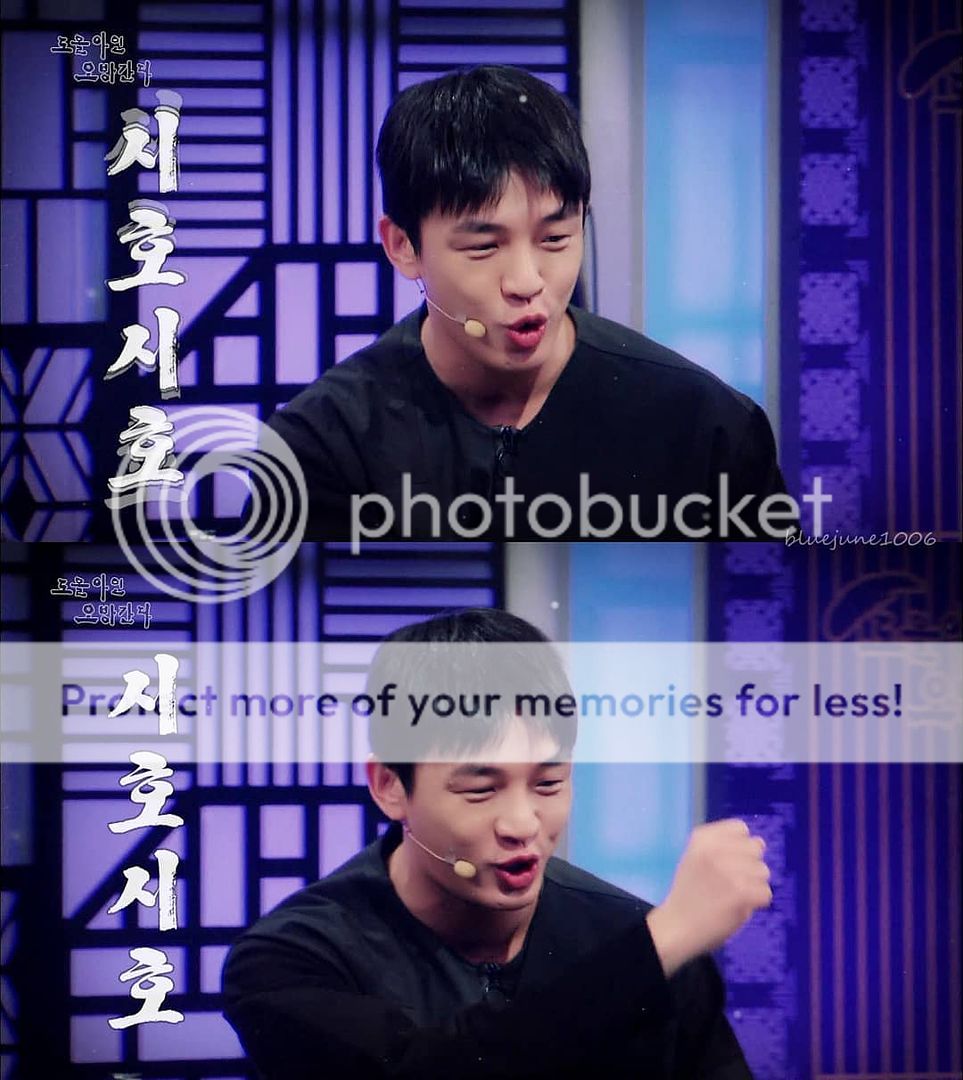
Yoo Ah In shared his thought, “What impresses me about Choi Je Woo is that he gave us such a great spirit of Donghak as the part of establishing equality. Imagine how inequitable the situation was and how humanity being ignored at his time. I think the situation was not really different from it is today. Although this isn’t the same society as it was then, but it’s still hard for us to speak up. There’s no more social class like we used to have, but a social class/structure made up of money, role and place. Somehow, I think I’m living in a more monstrous world.” He added that instead of preaching like religious leaders, Choi taught them “to know yourself, believe in yourself, each one of you is a precious person. So, let’s wake up and meet our new world. Let’s make it together.” Then he asked audience to share their experience on inequality. He talked very persuasively about his own view of inequality in current society and the essentials of the issues in Korean society today so that the audience cheered for him.
Do-ol Kim Yong Ok criticized that young people these days, unlike Choi, are living aimlessly or have wild/absurd dreams [at this point, he kept mentioning BURNING], and that the younger generation should be awakened [he spoke from the older generation point of view]. As usual, Yoo Ah In refuted Do-ol’s opinion and shared his. He emphasized that everyone has different things to pursue in life. “Obviously, we have some addictions. We get the satisfaction from internet, games or our own hobbies, and I don’t think it’s bad. After all our hard work, you said ‘it’s crazy to travel to Africa’ (like Haemi does), but in fact, taking a vacation is what life needs to keep us rolling in this economic society. At times, we want to forget about our daily life and go to some relaxing place to have a little rest. On the other hand, some people think it’s more fun to stay at home or just spend money for luxuries. I think that we should not criticize or underestimate the person who pursues other values that different from ours.”
Do-ol was not upset at Yoo Ah In and didn’t object his opinions, instead, he complimented Yoo Ah In by saying this is a communication. Then, Do-ol mentioned The New York Times again, and Yoo Ah In was really shy about it, trying to stop him and he almost left the stage 😀
[CLIP] Super shy Sik trying to stop and leave 😂❤
Dool introduced #YooAhIn as one of The New York Times 2018 Great Performers in “Dool-Ain Going All Directions” EP2 😆 #유아인 #도올아인오방간다
©starryrainy pic.twitter.com/CTvWV3aY6T
— Yoo Ah In Fanbase (@SIKseekers) January 14, 2019
Dool: New York… If you look at The New York Times article, Korea… is great
Yoo Ah In: Ayuh~ I’m ashamed. Please, stop 😀
Dool: Really… There’s this character who has recently been going internationally… I have not seen anyone got The New York Times recognition before.
Yoo Ah In: I want to disappear now…
► Yoo Ah In was shy and rather modest about the praise he got from his performance in BURNING. “There’s no reason to be so touched by the applause/praises that I receive. All I want is to reflect on my life through works and to talk with you [with the audience/people], like, where does the social structure come from? How to break this situation and move on to the next level? Can I still live like this? I wanted to share those stories. To be able to do this now is a much greater honor and more meaningful to me than getting an applause. So, thank you all for coming here.”
Then, Yoo Ah In talked about his debut. Suddenly, his first TV series BANOLIM/SHARP (2005) showed up on the giant screen. Cute embarrassment ensued:
[CLIP] Another embarrased Sik when his first drama Banolim (2005) showed up while he was telling his early career 😂❤ #YooAhIn – Dool-Ain Going All Directions” EP2 😆 #유아인 #도올아인오방간다
©free21_yoon pic.twitter.com/bYAVgnPPRq
— Yoo Ah In Fanbase (@SIKseekers) January 19, 2019
Yoo Ah In: I made my debut in teenage year and became an actor when I was 17 years old [cue Banolim photos and audience let huge gushes]
Yoo Ah In: Aaargh~! 😀
Yoo Ah In: That’s my first work.
And while talking about his debut, Yoo Ah In confessed that he felt inferior and wanted to be recognized by many people. “I wanted to be good, I wanted to do well. I felt a lot of inferiority and lack of qualification. I felt like I could not get respect if I didn’t become famous, and I wanted to be noticed and build my confidence through it. People are cheering on me now, but I have a lot of worries. My real name is Uhm Hongsik. Who is the human Uhm Hongsik? I just don’t know who I am, I don’t know what I want. Some people say that I have a great life, but, in retrospect, do I really? I thought ‘is this my choice? How do I live in the future?’. Though many people applaud and welcome me, in fact the human named Uhm Hongsik doesn’t even know where to go. Do I have to keep running and going higher and higher? I don’t feel like it. So, just recently I asked teacher Do-ol and my mother for answers.”
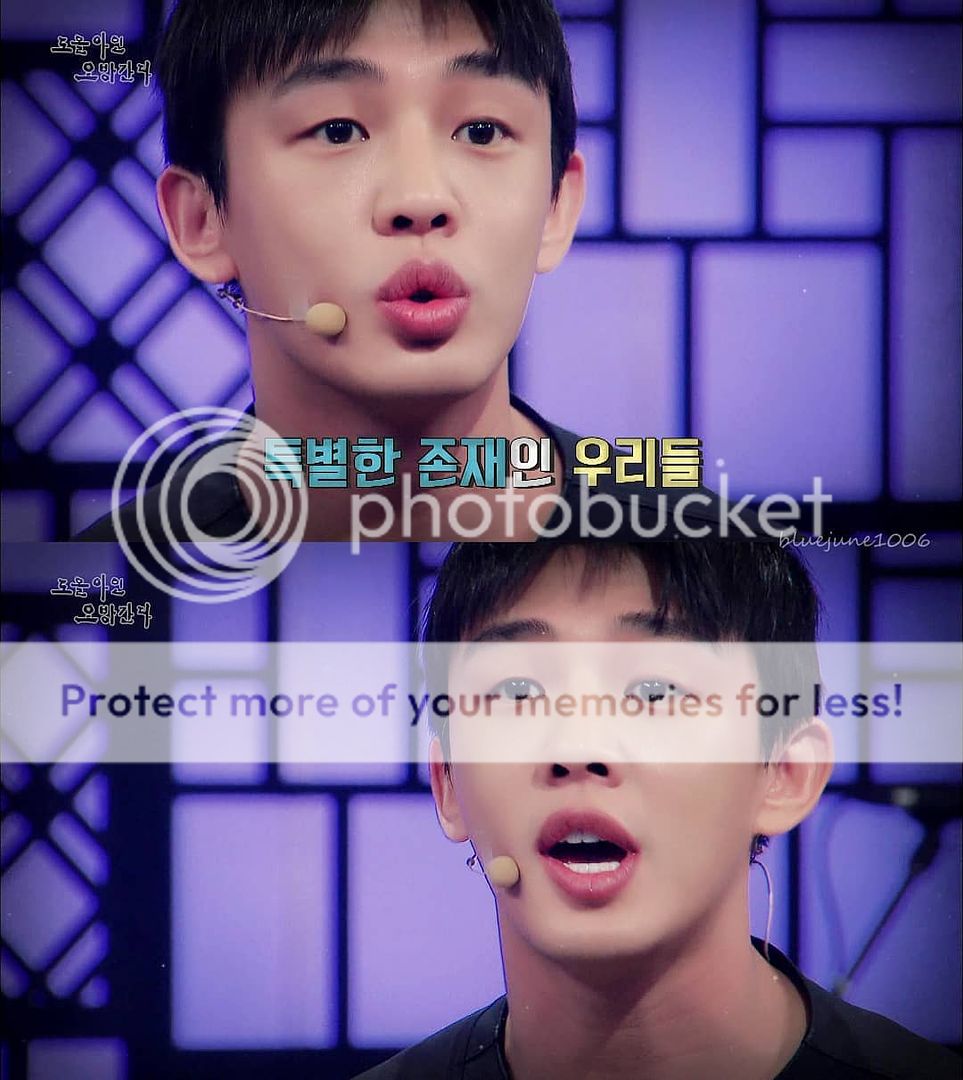
Yoo Ah In continued, “When things were good, I turned away from my mother, but in bad times I always turned to my mother. I still talk to my mother by phone (up until now). I called my mother and I was a bit tearing up before speaking. It’s just… the weight of this life. Everyone says that my life is amazing. I just… I’m the one who thinks this life is totally boring. I just… I found my heart was not very different from those days when I just came to Seoul from Daegu.” [T/N: he meant to say that he felt a lot of confusion just like what he felt in his early days when he just arrived in Seoul 15 years ago].
And his mom gave a sweet (and the best) answer. “My mom told me, ‘Hongsik-ah, don’t try too hard. It’s not special because you’re doing something. Mom doesn’t care. You’re just a special being. You’re my special/precious son.'” Yoo Ah In got teary-eyed while telling this. [T/N: “애쓰지마” or “don’t try too hard” is a Korean style when a person advises someone. It’s like “don’t make a great effort” or “don’t work hard”. It’s similar to “take it easy”. Perhaps, it’s because Yoo Ah In always made his best effort on everything, so that his mother was concerned and asked him to take it easy. Sometimes Korean elders say this word to young people].
Yoo Ah In said, “This is not just about someone’s precious son. We all seem to be different from each other, but we are also somebody’s sons and daughters. My precious daughter, my precious son are such beings. I had a lot of thoughts; oh, how will I take my life in the future? Will I live my life wearing other people’s clothes instead of mine? No, I want to find more of myself and live in pursuit of genuine values. I want to share my concerns with the people around me, to build a consensus and to make it with the society around me. Surprisingly, now I’m standing here.”
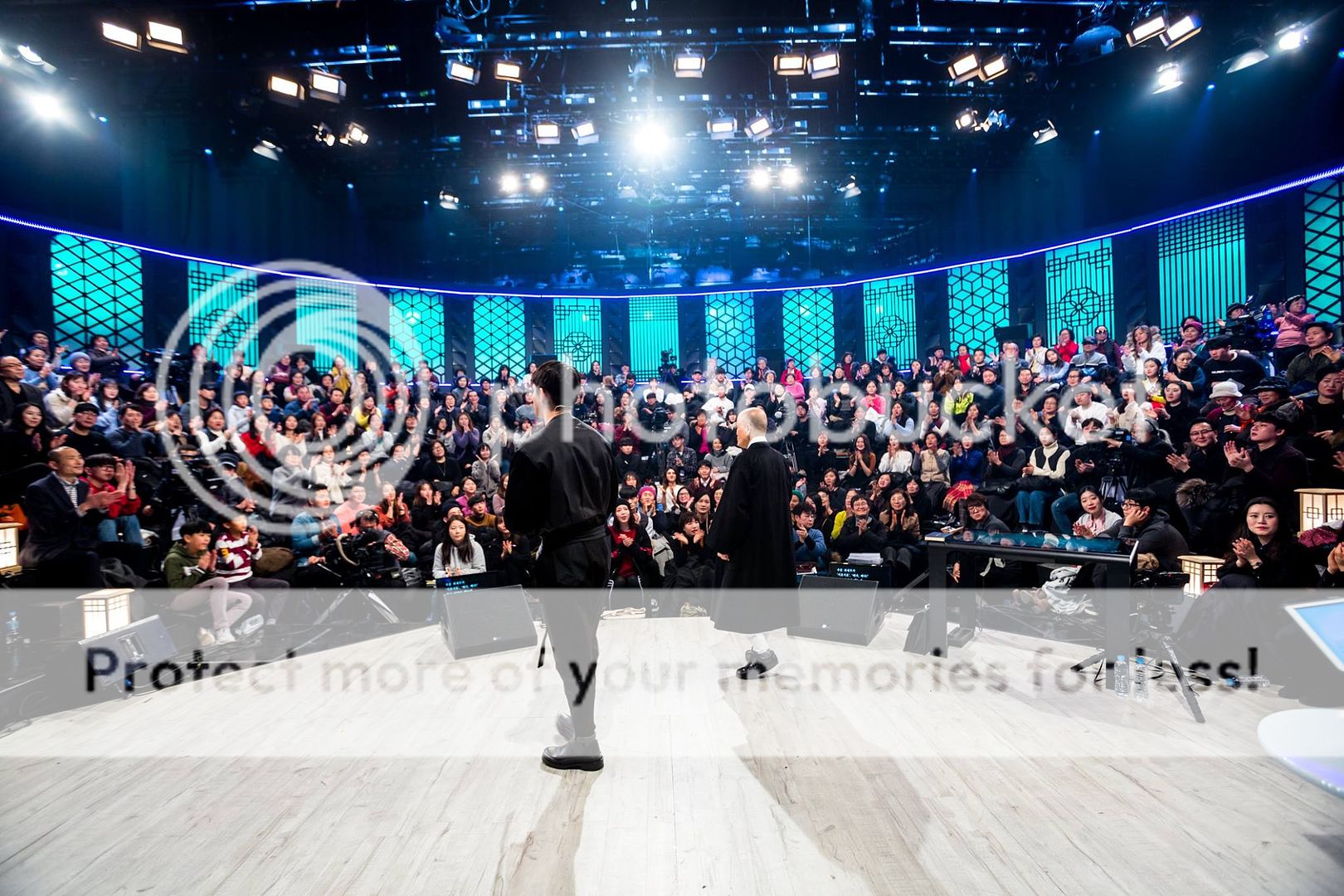
► Yoo Ah In also replied a question whether they need to sacrifice to live. After Do-ol gave his lengthy explanation, Yoo Ah In said, “I believe that humanity needs sacrifice. There are moments when I feel like I sacrifice just a little. I think we should start with the sacrifice spirit of saving our humanity.”
Lastly, at the end of the program Yoo Ah In said that, with all the stories he has shared, he didn’t mean to show them that he has experienced a lot of hardships, instead, he wanted people not demeaning themselves in unequal situation, and that they are all special existence, the same thing that Choi Je Woo taught them about. “Just as anyone who loves and cherish their sons and daughters, we all are precious. Even if someone is an unhappy person, (s)he is still precious. If we respect ourselves and others, and if we change ourselves little by little, I think we could live in paradise now in this age.”
Once again, Yoo Ah In received a lot of praises from the media. 10 Asia praised his courage and sincerity by saying, “In this program, Yoo Ah In confessed his anxieties and doubts he felt as a human rather than an actor”.
And now, here’s Oh My News interview with “Dool Ain Going All Directions” Chief Producer Kim Jong Seok.
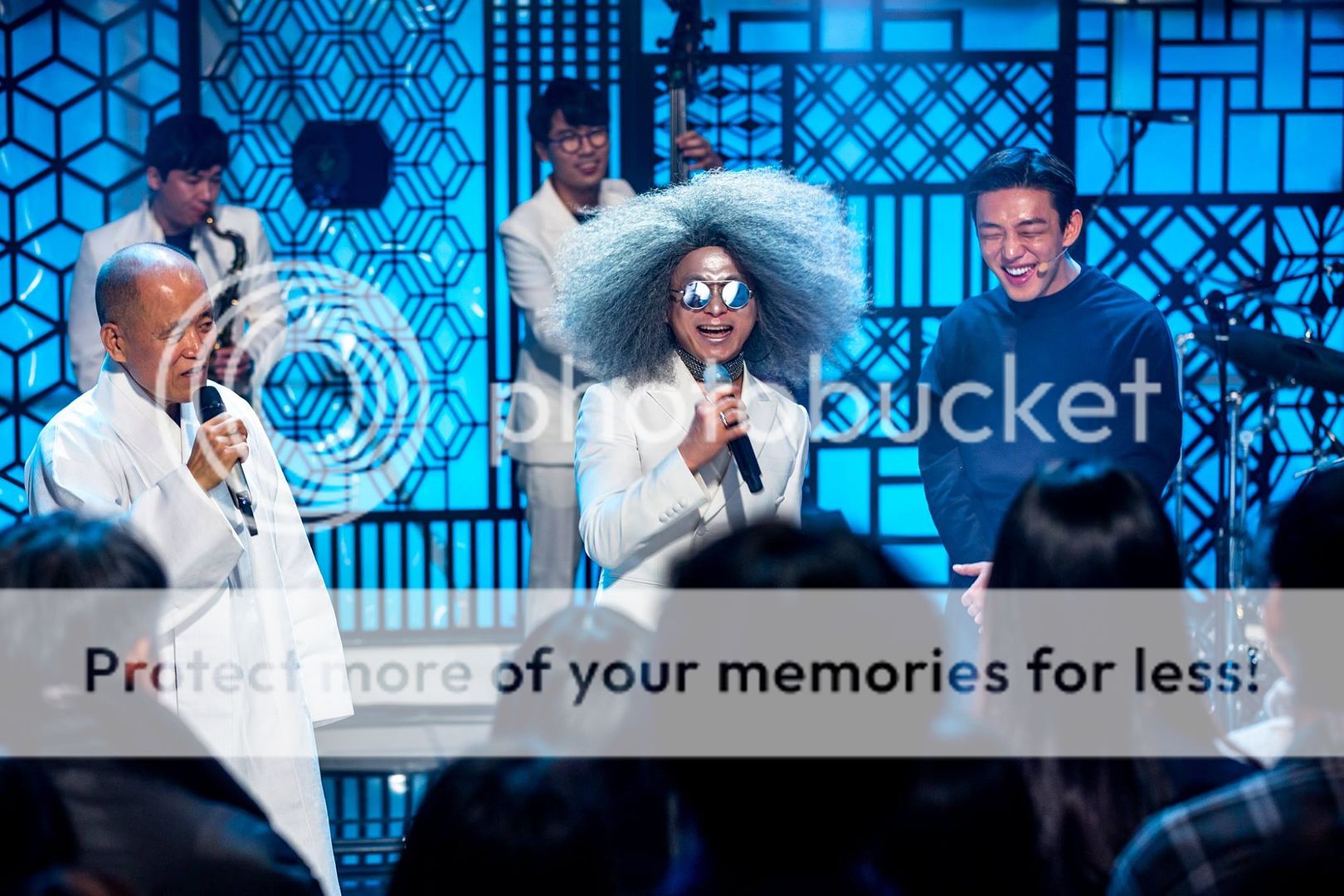

Behind the Scenes of “Dool Ain Going All Directions”
Q: On January 5th, Dool Ain Going All Directions began to broadcast. How was the reaction?
A: The first reaction of everyone was “it’s not like KBS”. They look at it as a very novel show because it’s different from the previous cultural programs that have been aired on KBS1 TV before.
Q: Why did you decide to broadcast the talk show on KBS1 instead of KBS2 TV?
A: I don’t know about the format, but from the content point of view it fits the KBS1 program. KBS1 doesn’t have commercials. The purpose of this channel is to bring the fundamental nature of Korean society, so that being commercial-free is necessary. If it follows suit KBS2 [by airing commercials], the programs will be influenced/affected by the ratings, thus it may restrict us from creating unlimited materials because you’re aware of the ads and the audience ratings. [T/N: audience ratings affect the commercials/advertisements on TV, and commercials affect the money made by a TV show. Commercial TV shows cater to the audience instead of having freedom to create a good show]. Therefore, we chose to broadcast on KBS2. Moreover, the history of independent movement has a lot of points to connect with the present time. Considering these factors, it’s the most pressure-free channel in Korea.
Q: I heard that Dool Ain Going All Directions was planned by Yoo Ah In and Professor Kim Yong Ok together.
A: This program is different from other programs. In order to meet the theme of March First Movement and the 100th anniversary of the establishment of the Provisional Government of the Republic of Korea, we asked teacher Do-ol to give a lecture about the history of the past 100 years. But, teacher said that he would like to be in the show together with Yoo Ah In because he wanted to communicate with young people. Teacher Do-ol has over the age of 40’s loyal fans, but the younger generation is not interested in his words. He said he wanted to communicate with young people. At that time, it seemed that he’s already in touch with Yoo Ah In. Hence, he suggested Yoo Ah In to us. Of course, we’ve discussed about this together beforehand, but Yoo Ah In’s appearance in the talk show is purely teacher Do-ol’s personal invitation.
As I said earlier, this program was originally produced by KBS, but teacher Do-ol and Yoo Ah In have been working on their own ideas together as the planners and directors in the process of creating the present format. The lecture contents are not determined unilaterally by the production team. So, it can be said that this is a joint planning and co-directing of philosopher Kim Yong Ok and actor Yoo Ah In. That’s why I think this program is a ‘collective creation’.
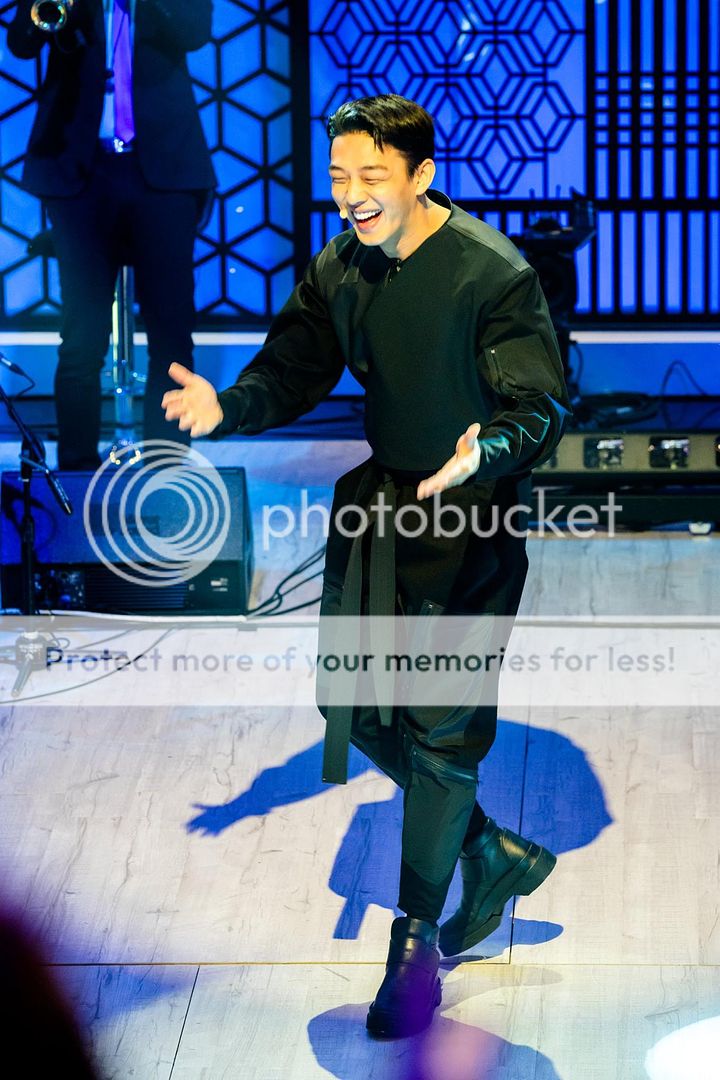
Q: How was Yoo Ah In’s first reaction?
A: Yoo Ah In had a very negative perception towards KBS before. He said, “KBS is not an organization that can produce creative works”. He thought that KBS would intervene a lot and have many restrictions. He wondered if he could go to KBS and do what he wanted to do, so this was an aspect he was most concerned about when he was to make the decision to appear in the show. But on the other hand, KBS1 has no commercials, so that he might find it meaningful. In Korea, there’s another free commercial channel EBS [Educational Broadcasting System, a South Korean educational television like PBS in the U.S], but that’s a special channel. So, we can say that we’re the only (general) channel that’s free from commercials.
When I persuaded Yoo Ah In, I told him “do whatever you want, as long as it doesn’t violate the broadcasting communication regulations and the actual laws”. In fact, efforts are being made for KBS to go in this direction. The production team will hardly intervene him, but we are focusing on to make teacher Do-ol and Yoo Ah In complete the program harmoniously.
Q: Yoo Ah In created the title Dool Ain Going All Directions. It’s uncommon for performers to create a program title.
A: This is the first time that a performer has created a program title, because the title is the very core part of program identity. Since it was decided by the performer, it should have been called “Plan Yoo Ah In”. This was also my first time facing this situation in my 23 years of my programming career. Originally, the production team wanted to use “Ain Dool, Let’s Go Together”, but Yoo Ah In proposed “Dool Ain”, instead.
According to Yoo Ah In’s explanation, the title is very unconventional. If you pronounce “돌아인” (Dool Ain) faster, it sounds like “돌아이” or “madman” [T/N: “Doolain” has the similar pronunciation with “madman” in Korean slang]. What we mean by “돌아인” is that we will not be bound by conventional customs or grammar. “오방간다” (going five directions) is a jargon used by hiphopers, which means “I feel good” or “I feel excited”. In this case, we gave the phrase a little more meaning. There are five cardinal directions in our solar system– east, west, north, south, and central. In other words, “오방간다” means “going in five directions”.
There is no limit to the materials and topics. It goes east and west, it goes beyond history and current affairs in time. We don’t focus on either the older generation and the younger generation but the whole generations, instead. I thought that this could be a good program identity and the integrity of the whole program. We try to tell the story, regardless of time and age, regardless of the theme and material, and go all over the places in unexpected way.
Q: So what is the production team doing?
A: You can think of this as a trinity. Teacher Do-ol, Yoo Ah In, and the production crew. These three subjects equal to the producers. We exchange ideas and stand on the same/horizontal level in making the program. For sure, most of the program editing and guidance are done by the production team, but there’s a role that only Yoo Ah In can do and there’s another role that only teacher Do-ol can do. So, our project is a KBS trinity co-production project.
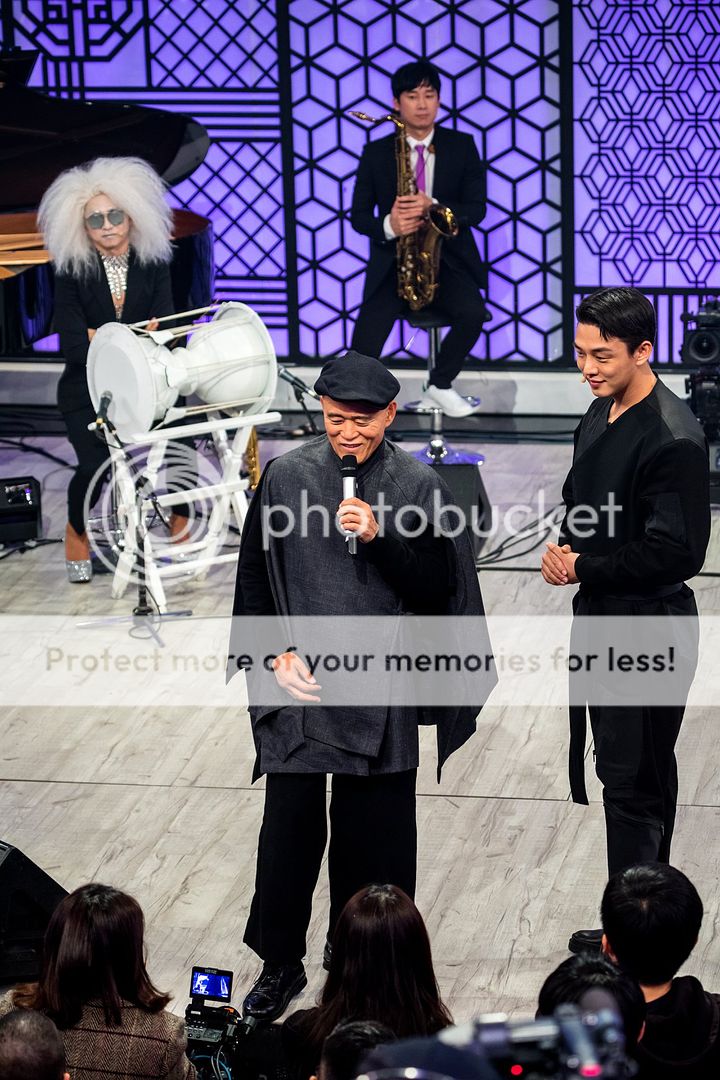
Q: How’s the chemistry between teacher Do-ol and Yoo Ah In?
A: The most common question I’ve heard about this program is, “how come you think of putting these two people together to create a show?”. That’s what people think when they see two shots [poster] of Do-ol and Yoo Ah In standing together. It’s a good indicator of the program direction itself. Teacher Do-ol is a veteran, and yet at the same time he has the same vision with Yoo Ah In who’s the young generation’s representative. So, I think they have a very good chemistry as they meet and spend hours together. It’s been less than two months since we began our first broadcast. In less than two months, I felt that the two characters, who have their own personalities, have a very impressive chemistry.
Q: The talkshow format is completely different from the previous lecture programs.
A: As I mentioned earlier, I began with a lecture by teacher Do-ol, but I added Yoo Ah In’s ideas. And with his participation in the show we changed the concept a great deal. So, it became a new concept of knowledge variety show. Like “Music Bank” and “Yoo Hee Yeol Sketchbook” programs, the audience are not just sitting but also participating in the program asking questions, and Yoo Ah In singing and standing up together with them. We talk between us that it’s just like performing in a traditional theater. [T/N: Korean traditional theater is a kind of traditional Korean performing arts that include dance, shaman rituals and acrobatics/circus]
The countryside people in the past gathered together in a big courtyard in the market, they laid mats and performed 사당패 (sadangpe; itinerant performance troupes formed by men) and pansori. The biggest/most important feature of our traditional art performance is that there’s little distinction between the performers and audience. Sometimes the audience can take part in the performance and naturally sing along with them. The concept of traditional Korean theater is minimizing the distance between the performer and audience. So, I’m trying to maximize that element as much as possible.
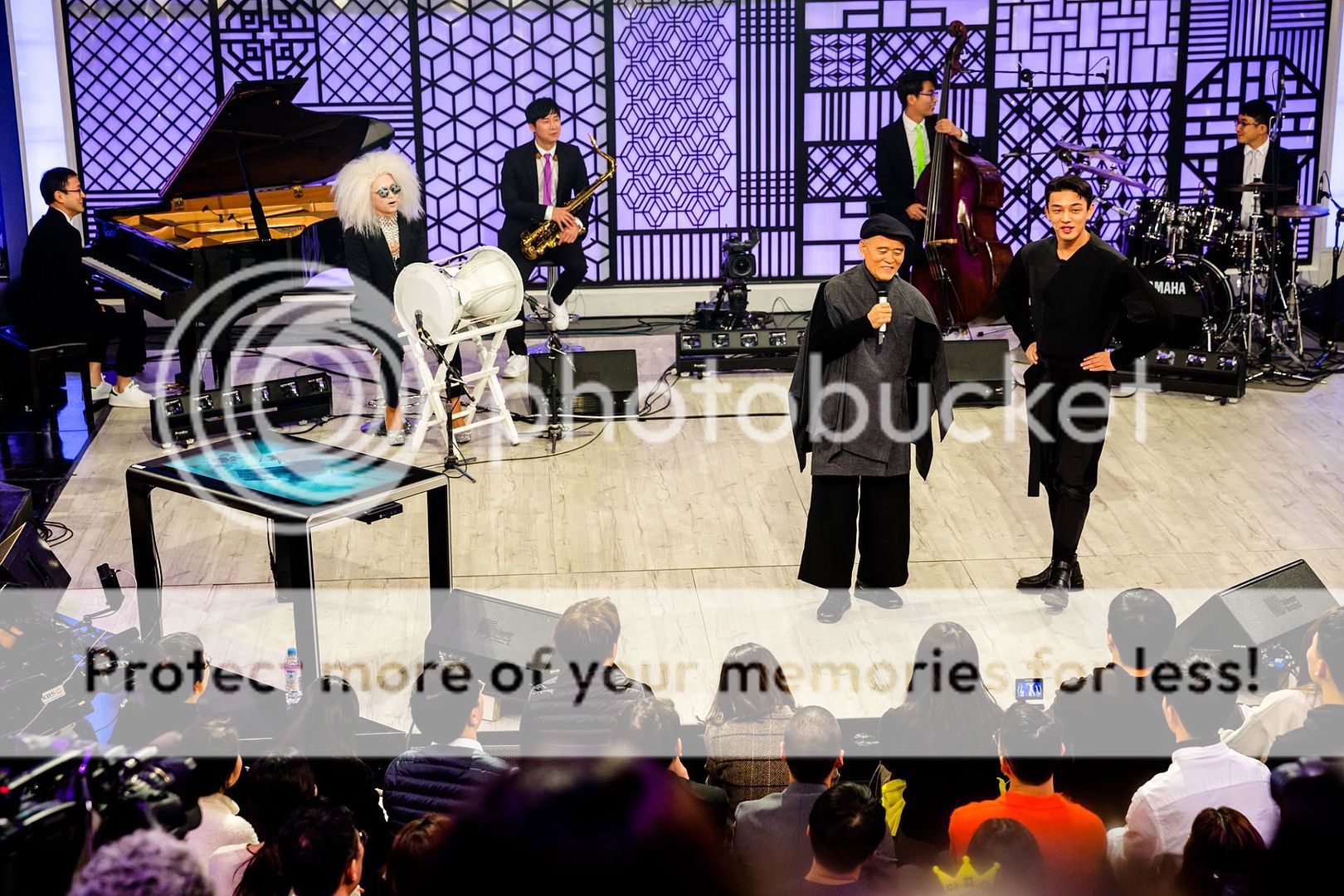
Q: How long does it take to record each episode?
A: It usually takes two and a half to three hours, so we have arduous editing work to do [to fit in one-hour broadcast duration]. Since this is different from other programs, we carefully defined the composition and prepared a “constructional exercise” for this. The program has a basic framework, but it emphasizes the improvisations, or rather, the impromptu elements given by Yoo Ah In and teacher Do-ol on the spot.
Normally, the recording time is twice as much as the playback duration. If you go beyond that time, you know something is wrong, however, Dool Ain Going All Directions emphasizes on the improvisation, so that the recording time takes longer than usual, and the editing process is very difficult. But compared to other programs, our program will not give off people a scripted feeling. [T/N: the program will not deceive the viewers by staging the interaction between Do-ol and Yoo Ah In or staging their interaction with audience in the studio]
Q: Why does this program have 12 episodes in total?
A: This is a one-time program. It’s a program with a deadline (towards March 1st), so it can’t be a regular program because we already have one history program called “History Journal Day”. So, our program is a miniseries. Besides, Yoo Ah In is someone who can’t do the program all year round (due to his actor occupation). In these 12 episodes we have a clear concept and we want the story to be meticulously told. You can say this is a miniseries of educational program.
Q: How was the first episode going?
A: Although Yoo Ah In is an actor, but he was very nervous when he first recorded. He’s a great performer in front of the camera, but why was he so nervous? I didn’t understand it very well at first. But then, I figured it may be because the environment was different. In the movie scene, there’s only one (or two) camera and several staff. But in this place, there are 250 audiences and everyone looks at Yoo Ah In. That’s 1:250. Every move, every single word, every single gesture is revealed and cannot be hidden. So, actors like Yoo Ah In tend to be nervous in this space. It made me realize that this program is not something that people like Yoo Ah In can easily do. [But he did a marvelous job].
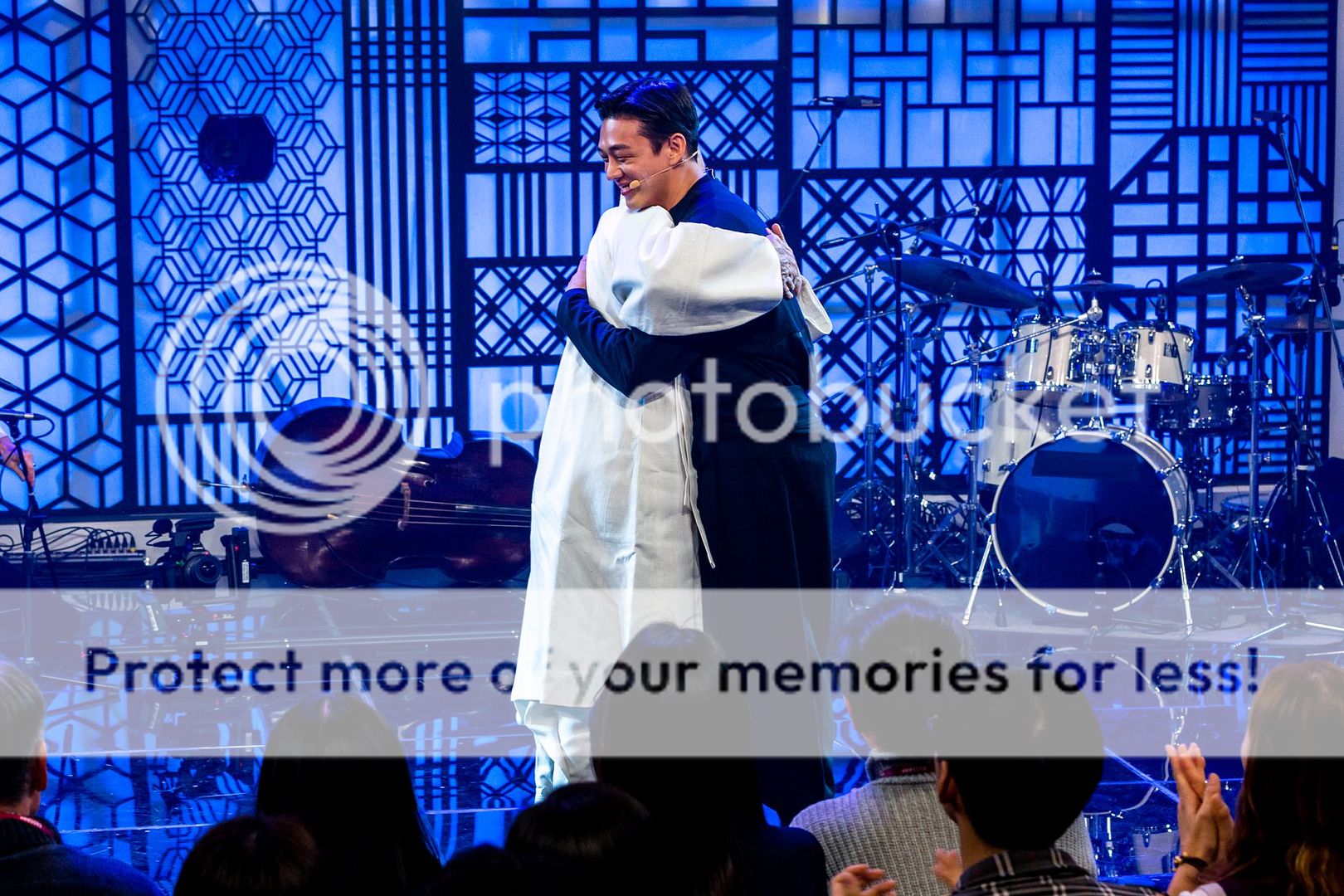
Q: What message do you want to convey to viewers through Dool Ain Going All Directions?
A: What is the most necessary value of Korean society now? I think it’s the respect for human beings and the restoration of human nature. I believe this is the root cause of many problems in our society, such as gender confrontation of men and women. The essence of our society now is not to respect nor regard human beings as human beings but evaluate, divide and oppress human beings merely based on their possession in society.
The first article of the Constitution states that “Republic of Korea is a democratic republic” and “all citizens are equal before the law”. The beginning of the constitution is to respect humanity. The March First Movement action resonated this, “We want to live like a human being. Why are we being oppressed?”. Recently, it was suggested that the March First Movement should be re-evaluated as a revolution because it was not a purely independent movement , but rather like the French Revolution and the Russian Revolution, a kind of civil movement that resists the oppression and exploitation of the vast majority of people with vested interests and power.
The first article of the Provisional Charter of the Interim Government of the Republic of Korea, which was launched in March First Movement reads that “the Republic of Korea implements a democratic republican system.” So, what does this mean? We talk about democracy and republic every day, but the core/essence of it is that every citizen lives a life like a human being, respects each other and is being respected. I want to tell the audience that our ancestors shed blood and sweat in the wilderness of Manchuria 100 years ago to create a world where the people respect each other and live like human beings.
Q: Lastly what’s your message to the audience?
A: Korean broadcasters have attempted to create this kind of program many times. I hope that our method will become a model, because the production method itself is very democratic. The performers and producers are in equal position. I want to make this a successful model. There are many types of exploitation structures in the broadcasting and entertainment industries. I hope that through Dool Ain Going All Directions we help a little bit the broadcasting industry to become more humane.
Yoo Ah In’s artist group Studio Concrete posted the snippets from this interview (they’re the PD’s answers from the question: “What message do you want to convey to viewers through Dool Ain Going All Directions?”) via its instagram.
Studio Concrete caption reads: Respect —-> F*cking important🤝
And Yoo Ah In’s comment reads: #verymuch 🙌
Bonus: Photos of Yoo Ah In’s first meeting with Do-ol Kim Yong Ok
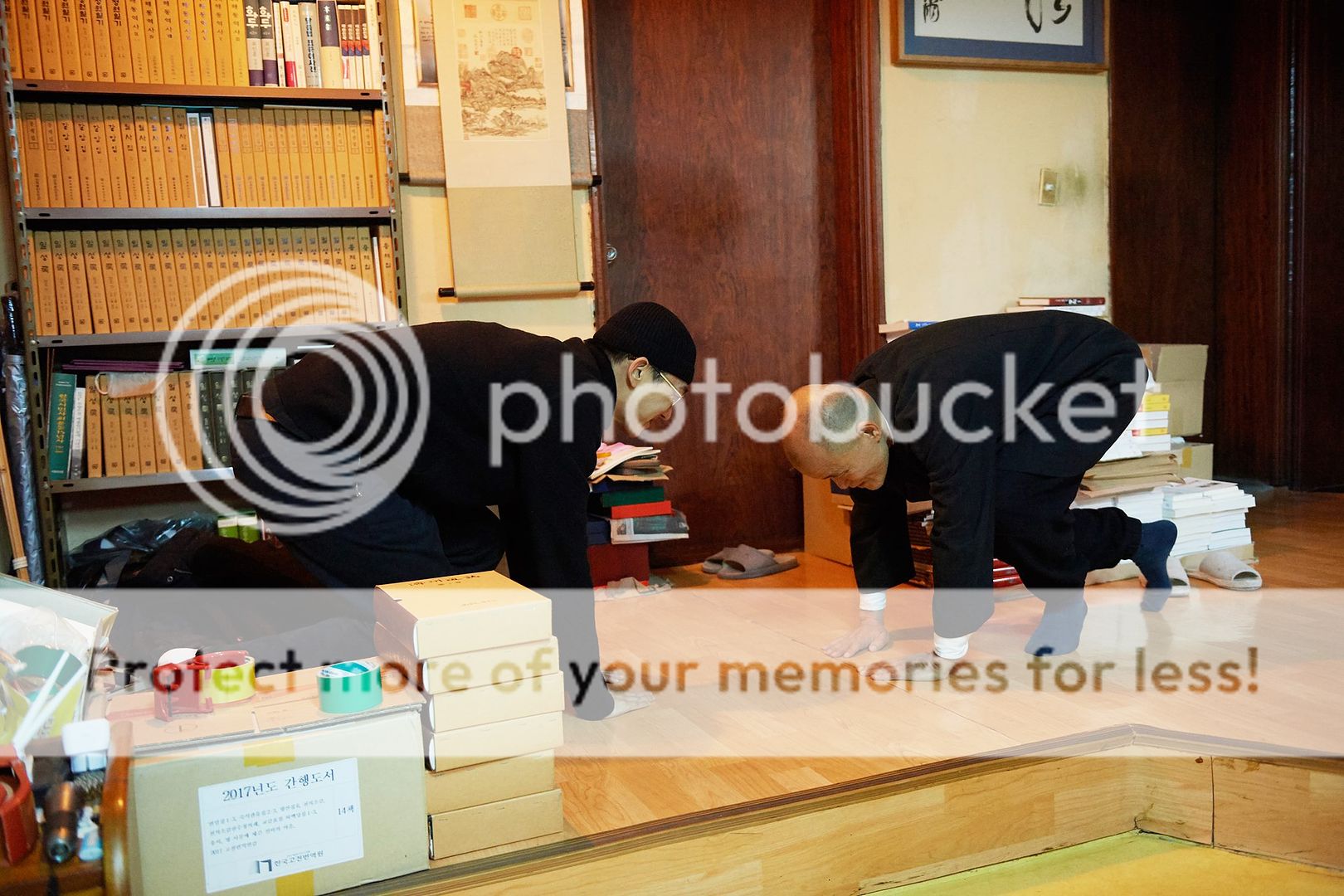
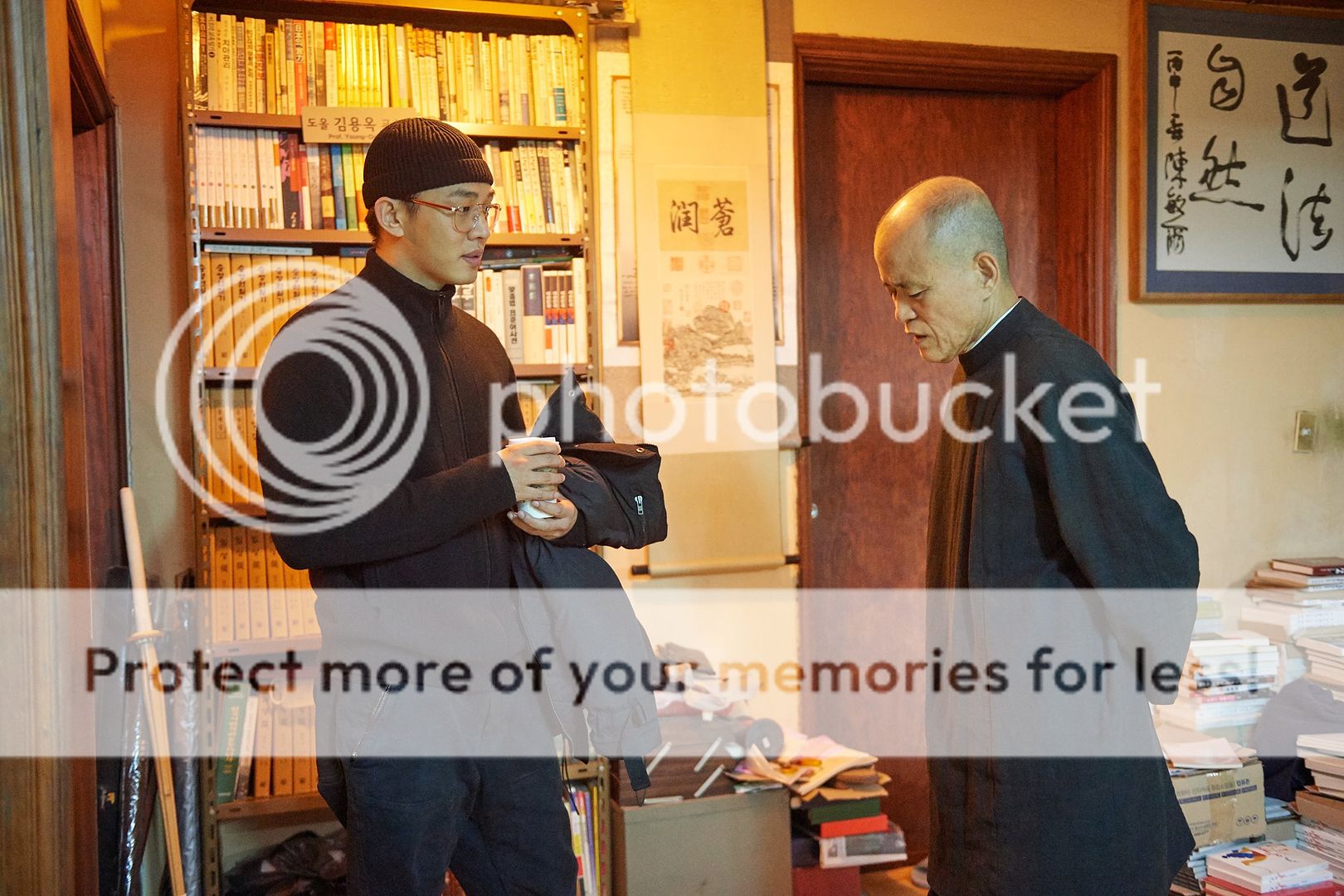
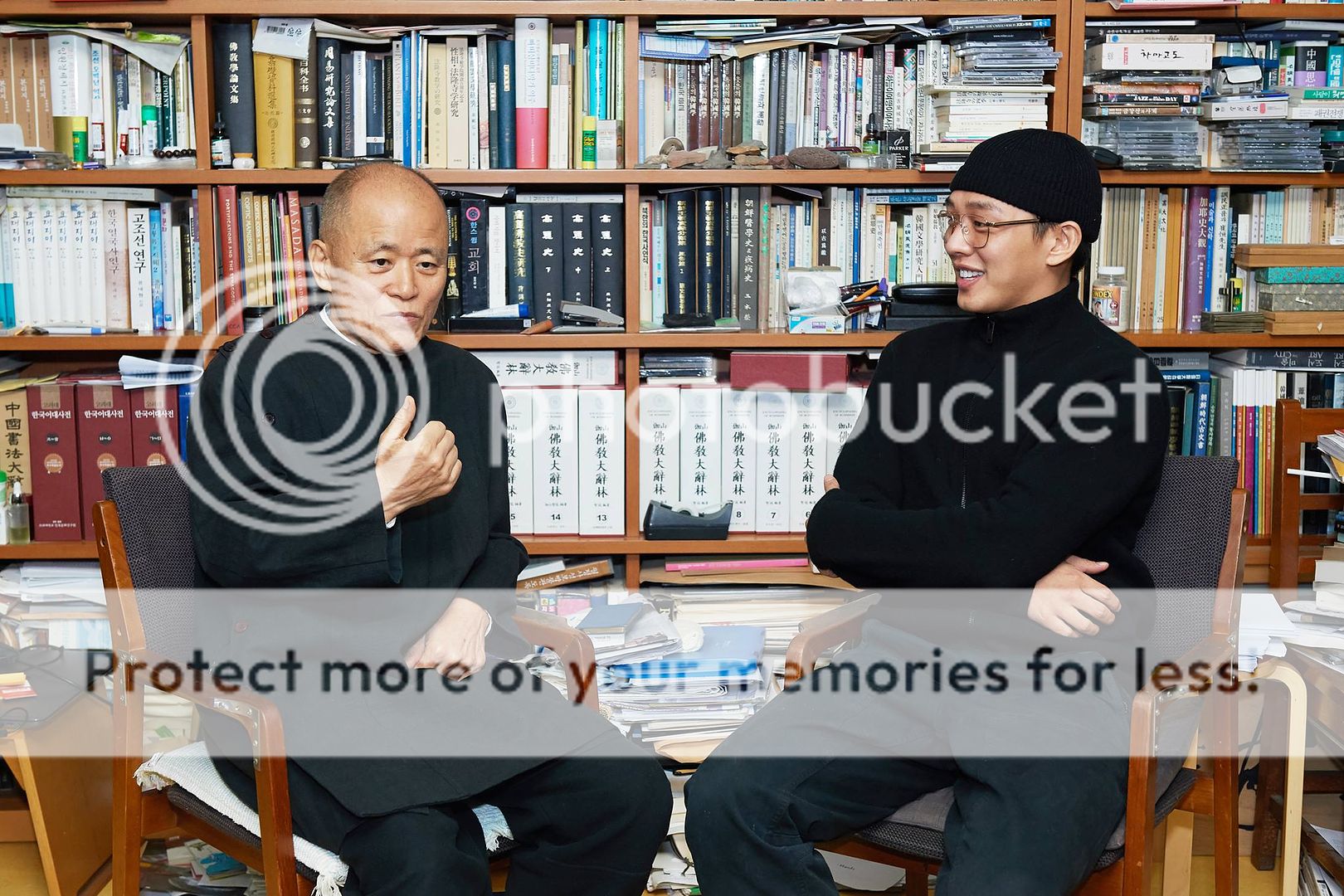
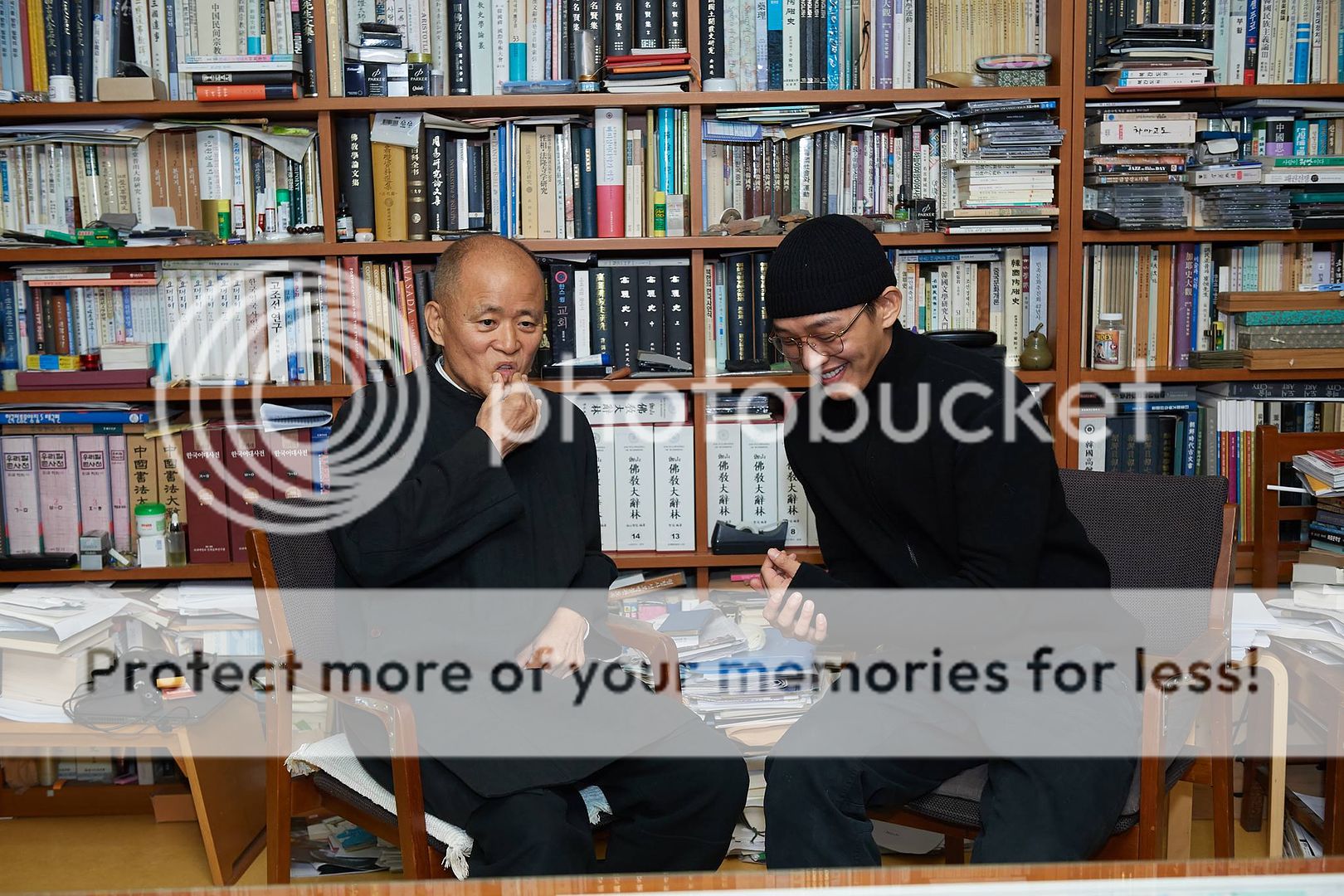
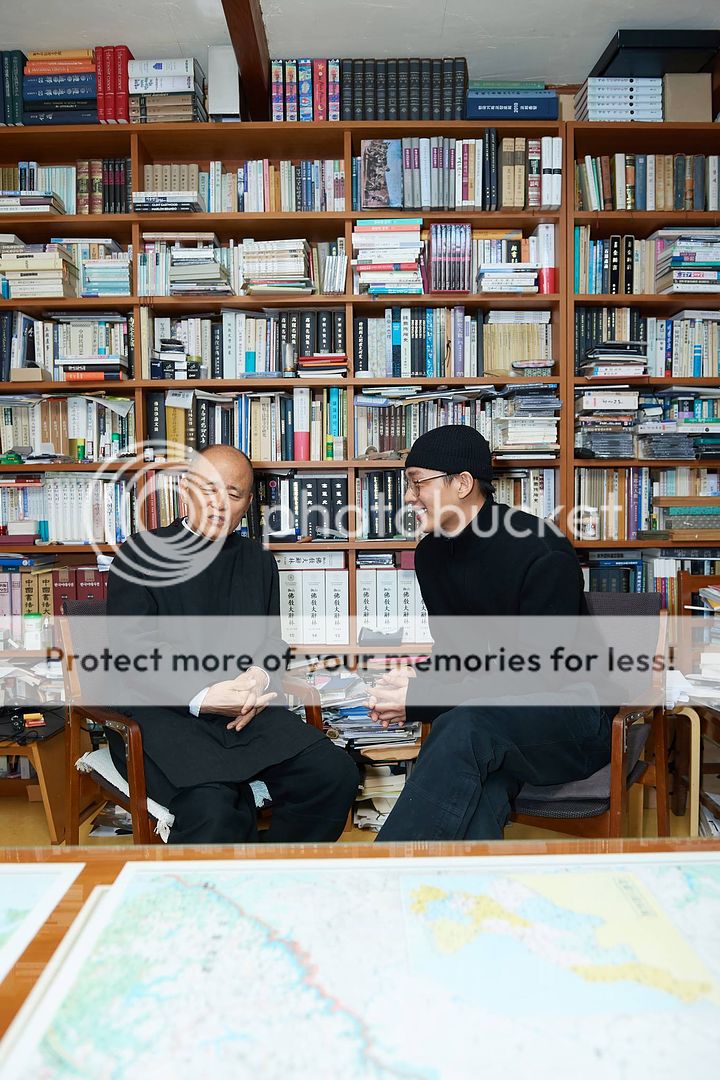
Translated by Mei and Admin007 of Yoo Ah In International Fans Community
© Yoo Ah In International Fans Community
=============================================================
※ Any copying, republication or redistribution of YOO AH IN SIKSEEKLAND’s content is expressly prohibited without prior consent of YOO AH IN SIKSEEKLAND. Copyright infringement is subject to criminal and civil penalties.
Source: KBS Doolain | Screencaps: Bluejune1006
Comments
9 Responses to ““Dool Ain Going All Directions” PD Interview & Episode 2 Recap: We’re All Special”Trackbacks
Check out what others are saying...-
[…] in the third episode of Yoo Ah In’s first talkshow “Dool Ain Going All Directions”. While the second episode talked about equality in general and social class, this episode drew a lot more attention because […]
-
[…] episode 5 on the same day after finished recording episode 4. Considering that one episode takes two and a half to three hours of recording, it gotta be quite an exhausting day, but you will see that he’s shining in […]
Dear Mei and Admin007,
Thank you very much for your labourious transliterations and all other work that brought this very informative translation together. I wish there was a way to relay to the PD of this programme that it is indeed a very unique production which would definately set a great example as to how public TV can be utilized to promote a culture, educate and discuss history and establish a platform for healthy debate on a society’s issues. This is also great example as to building bridges between different sections of a society. I am ever gratefull to all created Burning, I ended up becoming an enthusiast of all things Korean, even purchasing and testing a beta speech translation software just to understand snippets of Do-ol Kim’s lecture in this programme. Yes, the programme has a crazy Turkish translator fan who can’t speak Korean but does not miss an episode. What a great television! Teşekkürler. Sevgiler.
Hi Sevinc, I’m so glad that you like the talkshow so much and our recap could help you a bit to enjoy the show. You’re also amazing for going that far to understand the snippets.
Let’s hope KBS World will broadcast this someday!
Cross fingers!
many thanks to our translators who make it possible for us to be part of something good 🙂
YOO are welcome!
I would like to watch this series. do you know where we can watch it?
Following Yoo Ah In’s progress is one of my projects. I found he is seeking a better way of living, in a manner that shows nobility of soul and I wish to watch him grow more comfortable with the person he is and the person he is becoming. To smile when feeling the compassion stir in him and accept his own sensitivity as a gift. Combined with his intelligence he will help many young people to find their own better way of life. He has already started with the Studio Concrete and through this media events. Ah In will do more through his future writings and poems.